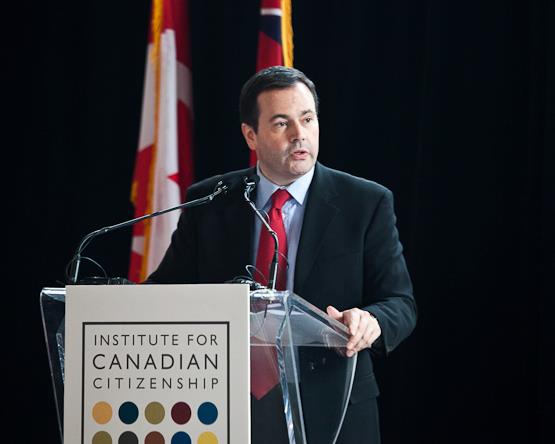
The Honourable Jason Kenney, Minister of Employment and Social Development, and the Honourable Jeremy Harrison, Saskatchewan Minister Responsible for Immigration, Jobs, Skills, and Training, announced today that two agreements have been signed by the governments of Canada and Saskatchewan to help connect Canadians with available jobs.
The Canada–Saskatchewan Job Fund Agreement invests in initiatives that respond to labour market needs. It also provides funding for programs and services that support the labour market readiness of under-represented groups such as First Nations and Métis people and people with low literacy levels.
The Canada Job Grant is an innovative, employer-driven approach to help Canadians gain the skills and training they need to fill available jobs. It is designed to be flexible enough to meet the needs of businesses of all sizes, in all industries and regions. By requiring employers to put more skin in the game, the Canada Job Grant will result in training that leads to guaranteed jobs.
The Government of Saskatchewan will be accepting inquiries regarding applications via their provincial website as of September 2, 2014.
Also signed today was the new Canada–Saskatchewan Labour Market Agreement for Persons with Disabilities (LMAPD). With increased employer involvement and a stronger focus on demonstrating the best possible results for Canadians, the new Agreement will better connect Canadians with disabilities with available jobs. The LMAPDs are the single largest federal government investment in helping Canadians with disabilities get jobs. Under this agreement, the Government of Canada will provide over $10.8 million per year to Saskatchewan, a contribution that will be matched by the province.
Quick Facts
· According to the 2013 Saskatchewan Employment Forecast, Saskatchewan expects to need 35,000 new workers and almost 60,000 replacement workers in the next five years.
· The Canada Job Grant will provide employers with up to $10,000 for training costs for an individual worker, including tuition and training materials.
· Approximately 800,000 working-age Canadians with disabilities who are able to work are not currently doing so. Almost half of these individuals have some post-secondary education.
Quotes
“Our government’s top priorities are creating jobs, economic growth and long-term prosperity. The Canada Job Grant is part of our commitment to address the paradox of too many Canadians without jobs in an economy of too many jobs without Canadians. With employers’ skin in the game, the Canada Job Grant will lead to a guaranteed job. Helping employers train Canadians for jobs that need to be filled will help their businesses grow and succeed. And that is good news for the Saskatchewan economy.”
– The Honourable Jason Kenney, Minister of Employment and Social Development
“Saskatchewan continues to be a leader in Canada in terms of economic growth. Today’s announcement will allow Saskatchewan businesses to invest in training that will equip their workers with the skills they need to prosper in today’s economy. We look forward to The Canada–Saskatchewan Job Grant being a tool our employers use to develop a skilled workforce and address the labour market challenges that have emerged as a result of our economic growth.”
– The Honourable Jeremy Harrison, Saskatchewan Minister Responsible for Immigration, Jobs, Skills, and Training
“The Canada Job Grant is an excellent way to increase value for money in training delivery. It means all stakeholders work together for the sake of the learner and ultimately the economy. The Canadian Building Trades strongly supports this program.”
– Robert Blakely, Director of Canadian Affairs, Canada’s Building Trades Unions